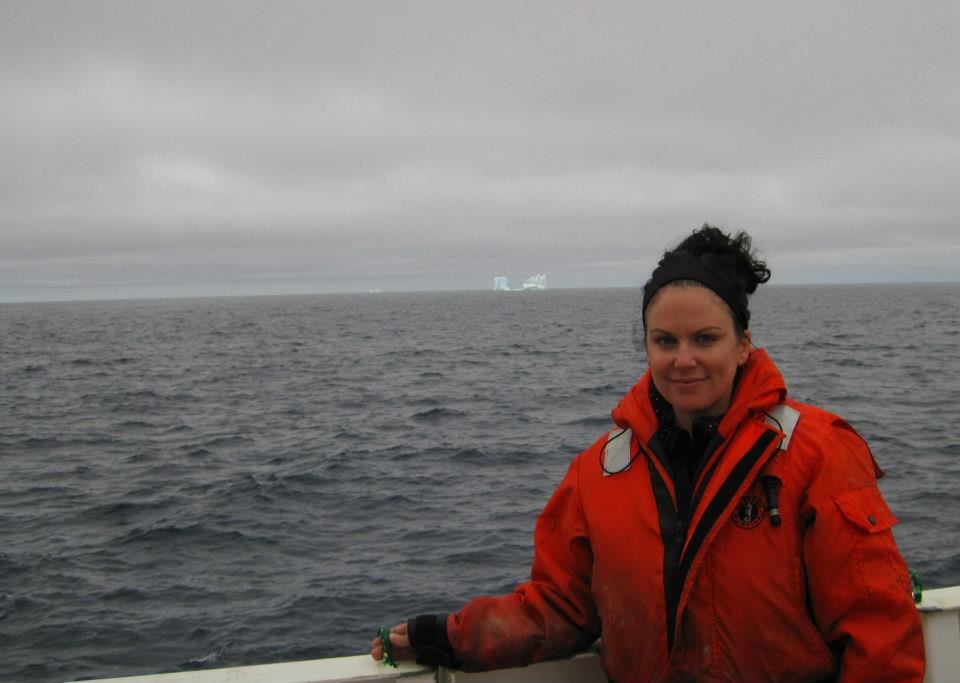
At the 2019 AGM, GANS elected a historic number of women to its board of directors. Like many sectors, geomatics has historically been male dominated. Women first started making their mark in the land surveying industry in the early 1990; and according to the Point of Beginning, Alice Fletcher was the first recorded woman land surveyor in 1886. The geospatial industry has certainly come a long way since then in terms of gender equality, but there is still lots of room for improvement.
We wanted to take the opportunity to introduce everyone to Vicki Gazzola, one of our new board members. In the Q&A below, Vicki talks about how her interest in geomatics developed, her experiences as a woman in the field, as well as the sector in general.
When did you realize that you wanted to go into geomatics?
I was in my mid 20’s and didn’t like the job I had. I decided I needed to go back to school in order to find something better, but I still had no idea what I wanted to do. I started researching different programs that were available at Canadian Universities and Colleges to find some inspiration.
I grew up reading my Uncle’s old National Geographic Magazines and watching Jacques Cousteau specials on TV with my Dad, so when I saw the programs available at COGS I knew that was going to be the place for me. I always knew I had an interest in mapping and that I loved geography but until I read that COGS booklet I didn’t realize I could turn that interest into a career.
During your program, were there many other women in your classes?
I took Cartography so we had more women than most of the other programs at COGS at the time. It was a small class; I think 10 of us graduated and 3 of us were women.
What advice would you have for those in the geospatial field who are just starting out?
It’s an exciting field that can lead you in many directions. If you choose a direction that leads you to field work, don’t be afraid of it, but understand that it can require a lot of personal sacrifice and that it can make it more challenging to find that life balance we all seek. That being said, it can give you the opportunity to see some pretty spectacular things and to have some truly amazing experiences. I would suggest keeping an open mind and never stop learning and updating your skills.
What would you say are the main challenges facing women specifically in geomatics?
There are definitely a number of challenges that are specific to women in this line of work, but it’s getting better. In my experience, the biggest challenges have come when working in the field. In some instances, people don’t think a woman can do something like use a wrench or operate a winch so you can sometimes feel excluded by other people’s lack of confidence in you. In other cases, I think some men are trying to be chivalrous by taking a piece of gear I’m carrying or trying to complete a task for me. I realize in these cases that they are just trying to be nice, but they wouldn’t do that for a man and it leaves me standing there doing nothing and feeling quite useless. I have found that once I prove myself and they see that I’m capable of doing my job, most of these challenges dissipated very quickly. A positive attitude goes a long way too.
Are there things that you think women specifically can contribute to the geospatial field?
I think men and women are all equally capable of making significant contributions to the geospatial field.
How far do you think there is to go in terms of women and diversity in the geospatial field?
There’s definitely further to go, but since I’ve gotten into this line of work things have changed a lot. I’ve noticed a big difference working in a research environment versus working in the private sector (with there being more diversity in the research environment), but across the board, more and more women are entering these traditionally male dominated lines of work. Last year I went on a small survey in the Bay of Fundy where women actually outnumbered men. That was certainly a first in my career and goes to show how far we’ve come.
Are you optimistic about the future for geomatics?
Yes, I’m very optimistic about the future of geomatics. Technology is changing so quickly. The data we are collecting is getting better and better all the time resulting in better and better finished products. The trick is to keep up with the ever-changing technology that allows us to do our work.
